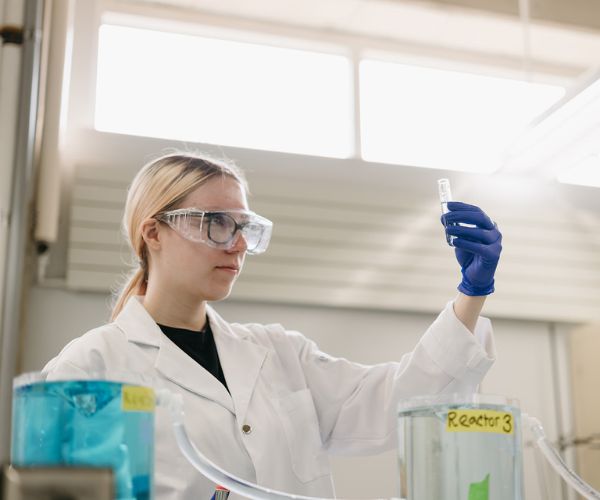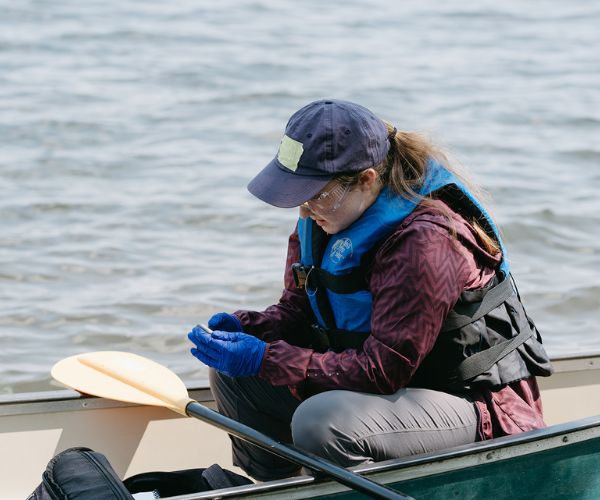Visit Carleton! Book your tour today.
Program Details
Our environment and climate are irreplaceable resources that support our health, ecosystems and the well-being of future generations. Environmental engineers are trained to protect these vital systems by ensuring we continue to have access to clean air, safe water and healthy soil. They work to reduce our impact on the planet and help build a more sustainable future for everyone.
A Bachelor of Engineering in Environmental Engineering will give you a broad education in science and technology, with a focus on the environment and climate. This program will teach you how to analyze environmental problems and design solutions to address them. The program helps students develop the required skills to lead change and create an environmentally sustainable future. The course of study prepares students for a career in diverse fields that can include:
- water and wastewater treatment
- air pollution control
- soil remediation
- climate change mitigation and adaptation
- waste management and diversion
Labs and Facilities
Environmental engineering students benefit from a high faculty-to-student ratio and hands-on access to specialized labs. In these labs, students learn to test and treat water, remediate contaminated environments, and monitor air quality using real-world techniques and state-of-the-art equipment.
Co-op
Carleton offers students a paid Co-op option with work terms of 4, 6, 8, 12 or 16 months. The Department of Civil and Environmental Engineering also offers eligible first-year students the opportunity to participate in a paid, eight-week internship through its First Year Internship Program.
Work Experience
Ottawa is home to one of Canada’s largest concentrations of government agencies and high-tech companies. Students will have access to opportunities that connect them with environmental government labs and research facilities that are unique to Ottawa.

Get started in Carleton360 to receive tailored information on our programs, student services and community.

Career Outcomes
Explore your passions, refine new skills and discover the career that’s right for you.
The skills learned through the study of environmental engineering are highly transferable and will prepare you for a wide range of careers in various industries.
Sample Careers
- Air Quality Control
- Conservation
- Design and Improve Treatment Systems for Water
- Environmental Sustainability
- Improve Outdoor and Indoor Air Quality
- Prevent Flooding and Protect Against Drought
- Provide Clean Energy Alternatives to Reduce Greenhouse Gas Emissions
- Resource Management
- Restore Disturbed Ecosystems
- Waste Management
- Wastewater and Solid Waste

Sample Courses
ENVE 2001 - Process Analysis for Environmental Engineering
Material and energy balances for reacting and non-reacting systems. Applications in mining, metallurgy, pulp and paper, power generation, energy utilization. Emissions to the environment per unit product or service generated. Introduction to life cycle analysis, comparative products and processes.
ENVE 4104 - Environmental Planning and Impact Assessment
Canada and U.S. environmental regulations. Framework for Environmental Impact Assessment, survey techniques for impact assessment and EIA review process. Case studies of selected engineering projects. Environmental planning, management of residuals and environmental standards. Risk assessment, policy development and decision-making. Fault-tree analysis.
Visit the Undergraduate Calendar to view a comprehensive list of course offerings for this program and discover the exciting things Carleton students are learning in the classroom!

